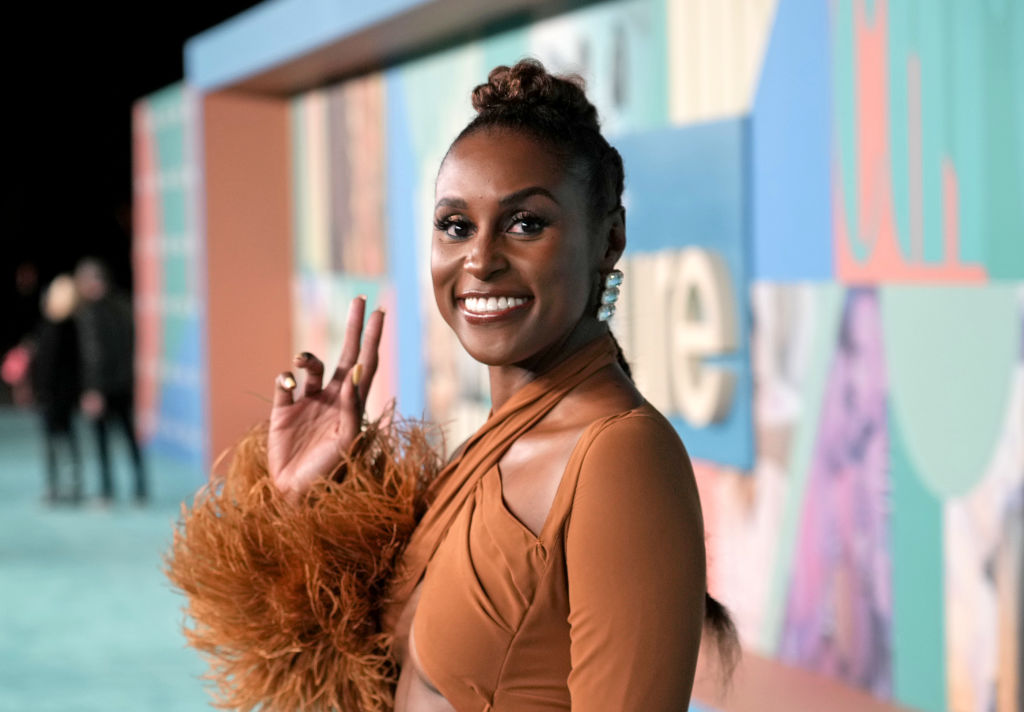
Source: Jeff Kravitz / Getty
The day after we gave and received gifts, we bid farewell to Issa Rae’s greatest gift to television, Insecure. On Dec. 26, we had no choice but to accept that was the last Sunday we would experience one of the most elite Black shows of our time. Saying goodbye to Insecure was far from easy because Issa, Molly, Tiffany and Kelli’s lives mirrored many of ours so closely. Millennials often doted over sitcoms like Living Single, A Different World, Martin and Girlfriends because we didn’t really have any shows that spoke to our experience until Rae introduced Insecure in 2016. As we watched them, they became friends in our head who we were rooting for while also relating to their struggles every step of the way. Insecure has also supplied us with another beloved Black love story. Now, when we talk about the legendary love stories of Martin and Gina, Kyle and Max and Dwayne and Whitley we can add Issa and Lawrence.
Throughout the five seasons on HBO, we followed a group of friends who were secure-ish but striving for more without knowing what that quite meant. The show’s focus was relationships, something that millennials struggle with more than anything. As Issa cheated and had to forgive herself and pick up the pieces to her love life, Molly remained on a diligent search for love on all the “right” apps but abiding by all the wrong rules. The show also accurately showed how complex adult friendships can get as we evolve and quite frankly, get tired of our friends’ bullshit. Rae, Larry Wilmore, Prentice Penny and the entire crew depicted our experience from every angle so perfectly. The hellish dating experience that’s dictated by apps and situationships. Dealing with a lackluster job because you don’t realize your own potential thanks to your insecurities. Holding yourself accountable for the role you play in your problems in order to see your desired changes. These are all the inner battles we fight as we approach our thirties and beyond and Rae told them with care and authenticity. There were also important conversations started about mental health, gentrification, the downs of watching your parents age and losing them, how falling off can affect your relationship, co-parenting with someone you don’t love and many more.
As I watched my own life-adjacent experiences play out on screen, there were also lessons learned. Like contrary to how our parents’ lives may have played out, there is no definite track that your life is supposed to take because you are a certain age. Insecure taught us that expecting a conventional life could be a breeding ground for our own insecurities and limit us in every area of our life.
Now that Insecure is a wrap we’re dealing with a feeling of loss. What other half-hour series will have us in our feelings like this? Are their other Black shows that depict our experience from such an authentic standpoint? Can we trust that other Black shows will have all-Black writers and storytellers behind the scenes sharing our stories?
Since Insecure’s emergence in 2016, Black television began thriving with impressive shows popping up on streaming services as well as major networks. Shows like The Chi, black-ish, grown-ish, Snowfall, Power and its spinoffs, P-Valley, Queen Sugar, Greenleaf and most recently Amazon Prime’s Harlem and ABC’s Queens have been filling the void for Black entertainment. Insecure is irreplaceable but thankfully we have a slew of Black shows we can turn our attention to that are worthy of praise.
With Lawrence and Tiffany settling into being parents, Issa leaving a lasting affect on Inglewood, Kelly’s fake death refocusing her on her purpose and Molly being her own agent of lasting change, it was clear that the focus of the final season was legacy. Outside of the characters, the show has its own legacy. The impressive storytelling, the focus on Black designers and businesses, the hair and makeup and even the lighting gave Hollywood the perfect picture of what Black TV should look and feel like. Rae, who is the second Black woman to ever create and star in her own show, showed Hollywood that Black stories deserve to be told and from different viewpoints. And if Black creators can’t tell their stories at their tables, we’ll bring our own.


0 Commentaires